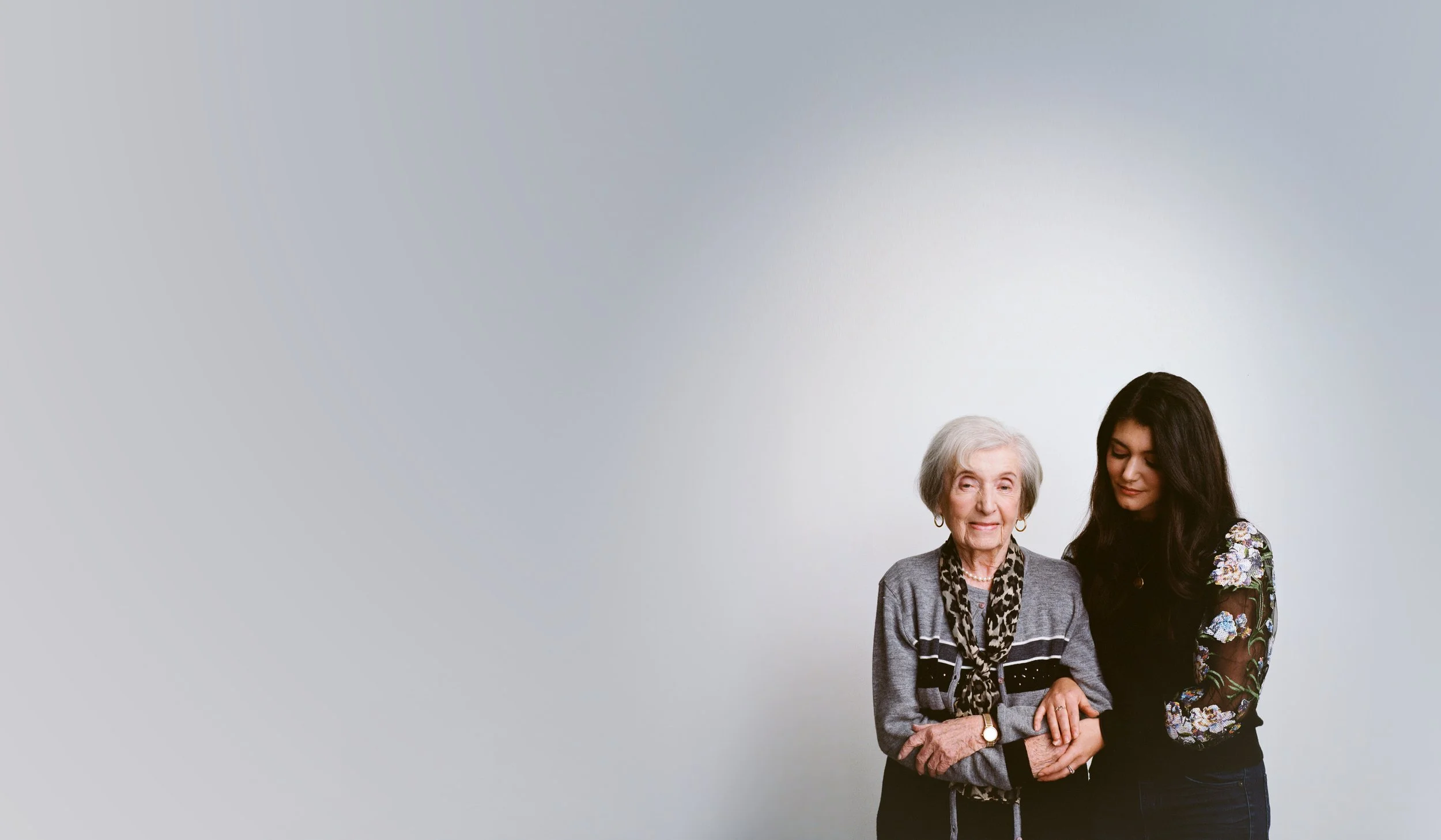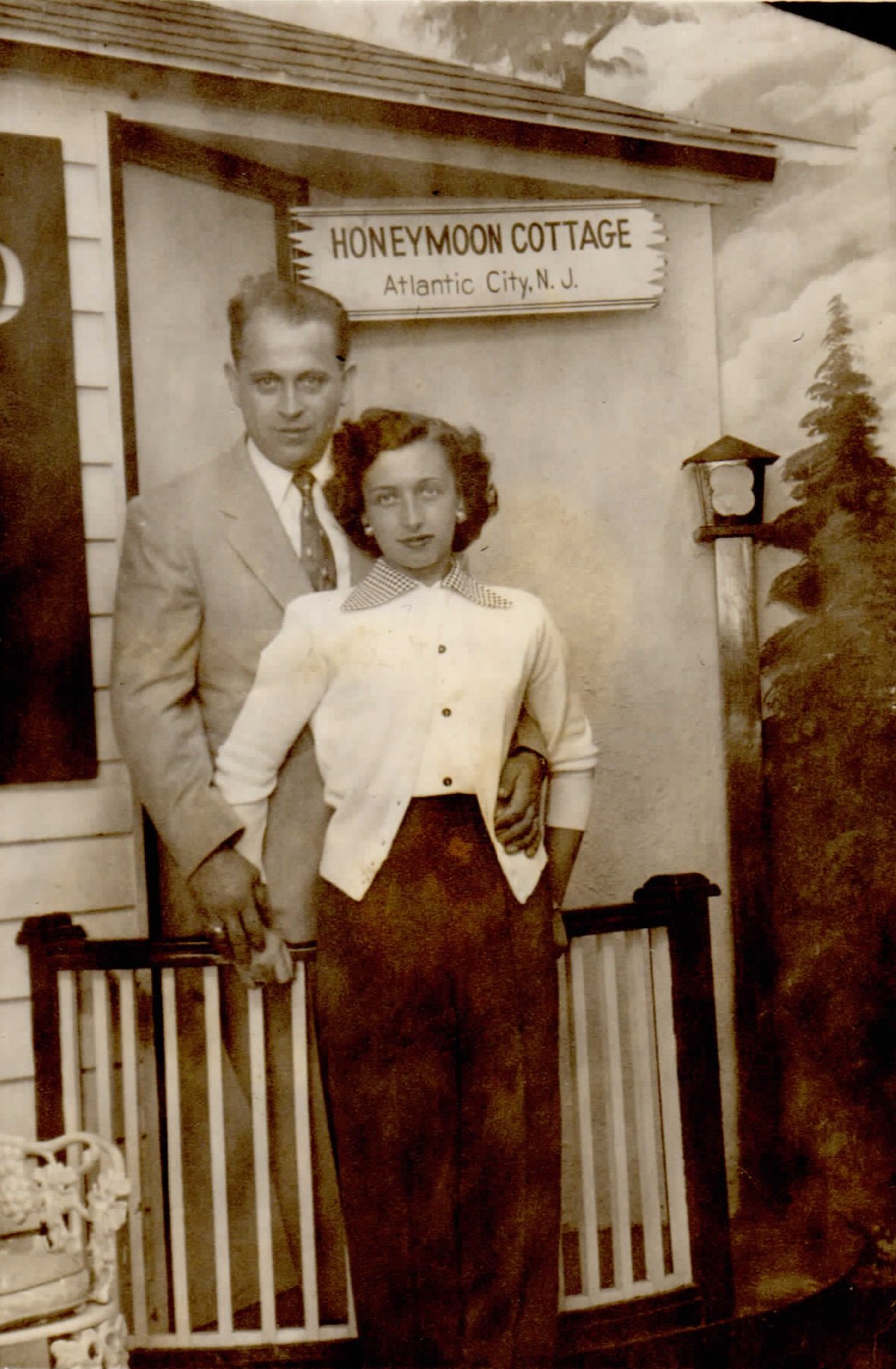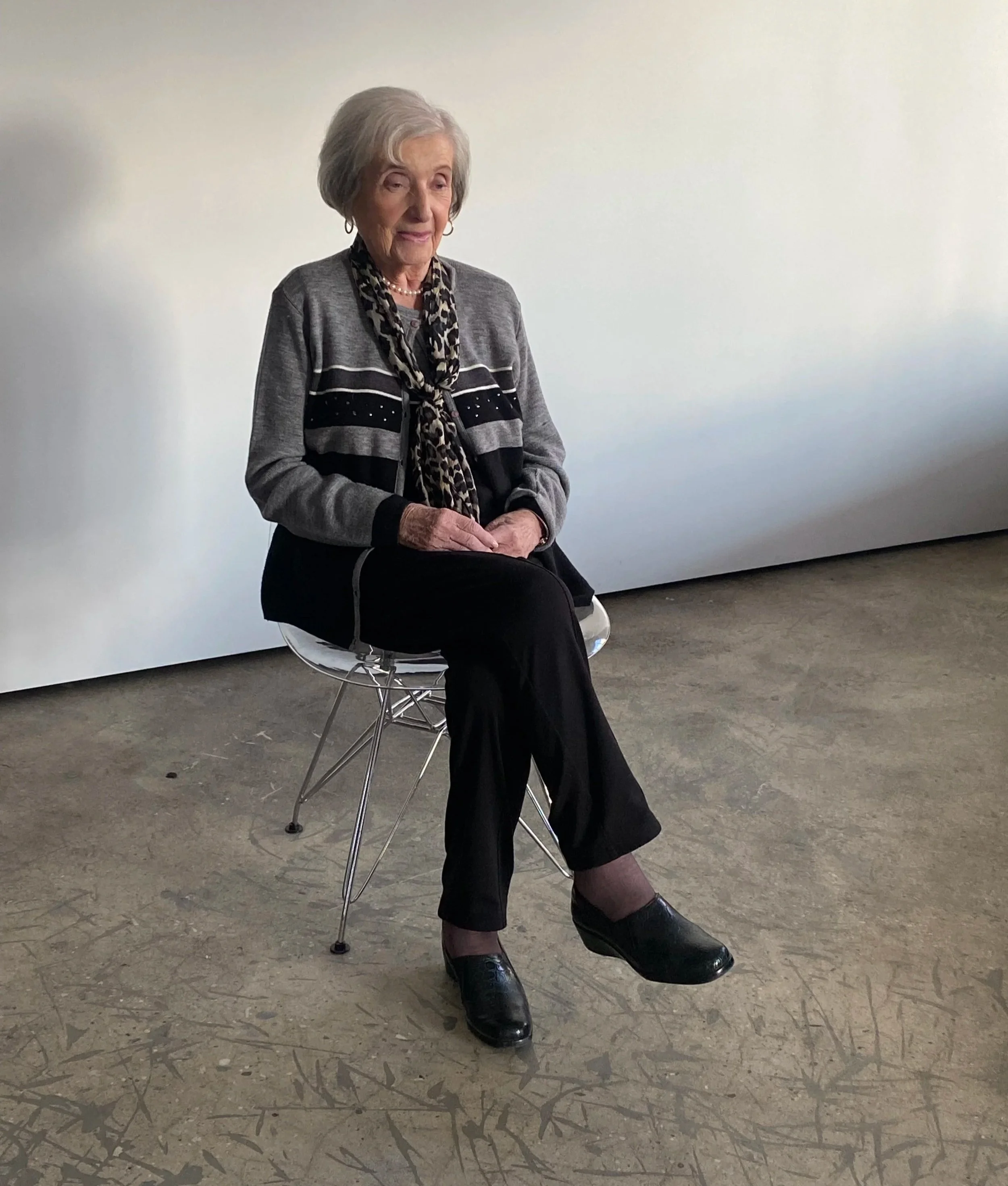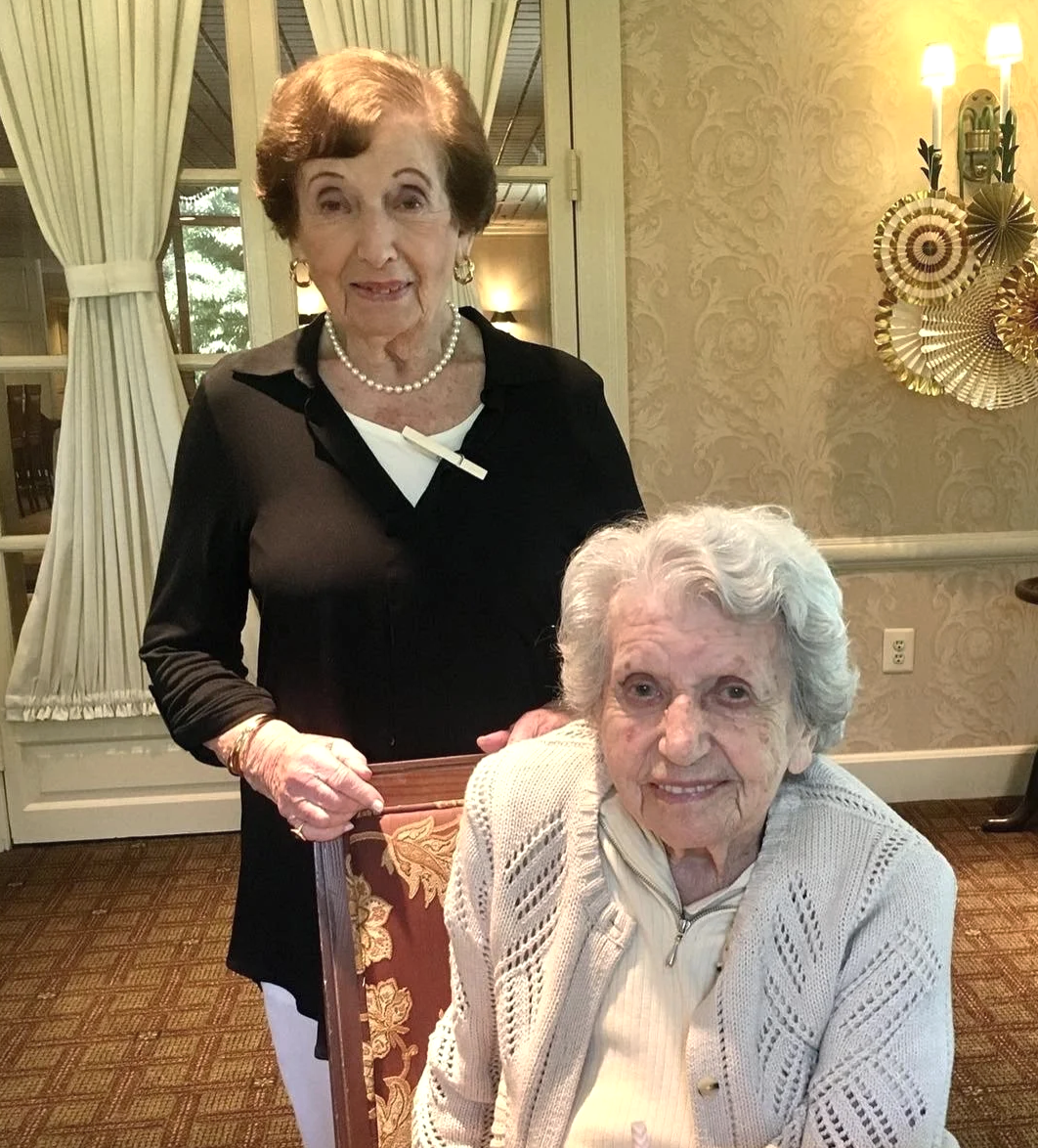
In Loving Memory of My Great-Aunt Masha Friedman
By Alison Berg Reynolds
Masha was a survivor of Auschwitz and Sachsenhausen, where she and her sister, Anna, performed slave labor on an assembly line for a Nazi airplane factory. They were on a death march together, but liberated by the Russians. Masha eventually moved to the US joining her sister.
Masha was not hesitant or ashamed to call herself a survivor. She did so with defiance. She would mention it in the context of being able to conquer any other hardship she could face in her new life.
While she did not enjoy telling her life story, she was keenly aware of how antisemitism was alive and well and understood her role in remembering history. I don’t think she was happy to be the face, but she was happy that there was an organization that needed a face — that meant there was a group of people committed to remembrance and action.
Originally, she and I participated in a Teen Vogue article about passing Holocaust stories on to the next generation, paired with a moving photo shoot of the two of us. Masha could always be found in a colorful cardigan, but when choosing an outfit for the photoshoot she picked a simple grey and black ensemble. Very out of character, but she said this was not a vanity project. Her story was dark.
The photos of us were striking — in part because even at 94 she barely had a wrinkle — but our interlinked arms so clearly evoked the connection 3Gs have with our grandparents. When Living Links was sourcing content for the website, Masha’s direct and defiant gaze, with my arms linked with hers, felt like an embodiment of the Living Links mission.
In the Teen Vogue interview, she refers to my participation with Living Links as “trying to change the world.” At first she was surprised that young people were making such a fuss about her. The 3G movement gave her hope for the future and strength to keep telling her story as long as she did — she was 97 when she recorded her testimony with the USC Shoah Foundation.
One story stood out about a good friend of hers from her hometown. In the ghetto, this girl was bragging that she had met a soldier who was going to get her papers and sneak her out. She was found dead and naked in a ditch the next morning. Another shocking moment was when she conducted the interview in English and kept repeating a word in Hungarian, struggling to remember the English word when describing her time in Auschwitz. The interviewer was Hungarian and could translate: whip.
Despite these horrific stories and more, when asked what the most painful memory was, she described her mother being taken from the garden. It was the moment her family was permanently splintered, and they did nothing to deserve it. Despite the violence and horrors she would witness, this was her biggest grief.
Masha remembers seeing her mother for the last time.
Masha was, however, someone who came out of the Holocaust steadfast in creating a new, happy life for herself. She was loving, vibrant, sweet, loved to laugh and enjoy the nice things in life. It was such a wonderful thing to see that even the worst of humanity need not kill the spirit of kindness and joy. We all make choices in our everyday life, and if we realize that even our smallest choices can impact others, we can make better decisions and change lives.
Masha’s message to future generations.
Masha and her sister Anna







